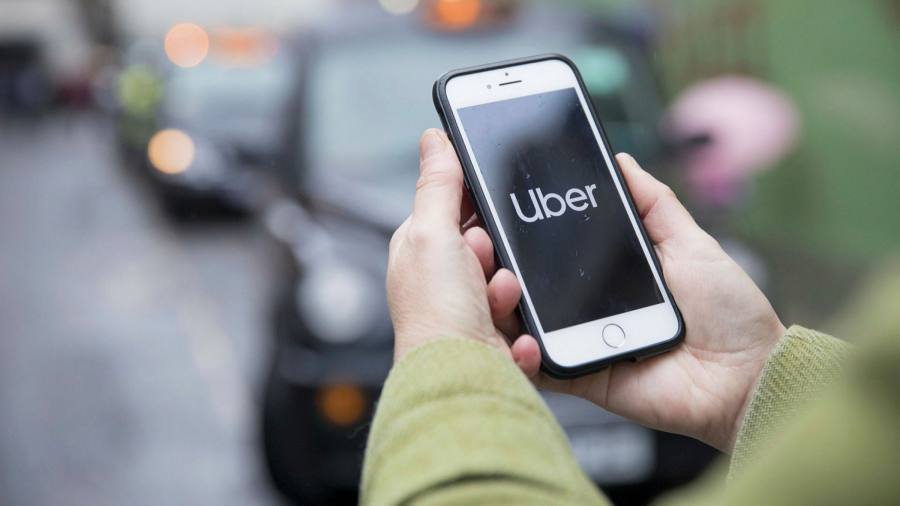
Uber to allow UK drivers to unionise in global first
Uber has struck a landmark agreement with one of the UK’s largest trade unions, the first time that the Silicon Valley company has recognised a union of its ride-hailing drivers anywhere in the world.
The GMB union will be able to represent tens of thousands of Uber drivers in the UK, giving them collective bargaining powers, the two organisations announced on Wednesday.
The move follows Uber’s defeat this year in the UK Supreme Court, which ruled that its UK drivers are workers, with rights to the minimum wage, holiday pay and pensions.
“You may think that Uber and the GMB don’t seem like obvious allies but we’ve always agreed that drivers must come first,” said Jamie Heywood, Uber’s regional general manager for northern and eastern Europe. “We are breaking new ground.”
However, Uber will not engage in collective bargaining over earnings, including the implementation of the minimum wage. Uber will “consult in some areas, collectively bargain in others”, Heywood said, but refused to provide further details.
Some campaigners have criticised Uber for overlooking the Supreme Court’s ruling that drivers should be paid whenever they are logged into its app, including between jobs. Today, Uber only ensures that its UK drivers earn at least the statutory minimum wage for the time they are assigned to a customer’s trip.
Mick Rix, a national officer at the GMB, said the deal “will give Uber confidence, and it will give the labour movement globally confidence, to sit down and replicate what we’re doing and try and better it”.
The GMB, one of the UK’s big, traditional unions, said it had first approached Uber several years ago but discussions had moved on rapidly since the court ruling in February.
Gig-economy companies such as Uber have fought against unionisation for many years, arguing that traditional employment structures were incompatible with flexible working and fluctuating demand from customers.
Last year, after vigorous campaigning by Uber and its rivals, voters in California approved Proposition 22, exempting gig-economy companies from a new employment law and entrenching drivers’ status as independent contractors.
In Europe, however, Uber’s position is starting to shift, as it faces growing pressure from governments and magistrates. It has struck collective bargaining agreements for its food delivery couriers in Italy, while in Germany its drivers are employed through fleet-management companies.
The GMB, which represents more than 620,000 workers across various industries, has been critical of Uber in the past, accusing the company last year of “Dickensian actions and attitudes”.
Its decision to enter an agreement with Uber contrasts with the more adversarial approach of smaller, younger unions such as the App Drivers and Couriers Union, which is still locked in legal battles with the ride-hailing company over the interpretation of the Supreme Court ruling.
Rix said disputes over the legal status of workers, and the definition of working time, would be better settled by legislation, arguing that the agreement would allow the GMB to negotiate better pay, improve health and safety measures, and allow drivers to organise without repercussions.
James Farrar and Yaseen Aslam of the App Drivers & Couriers Union said the GMB deal was a “step in the right direction”. But the ADCU “is not prepared to enter into a recognition agreement with Uber”, they added, as the company “continues to violate basic employment law”. “We have concerns about Uber’s motivations,” they said.
Stay connected with us on social media platform for instant update click here to join our Twitter, & Facebook
We are now on Telegram. Click here to join our channel (@TechiUpdate) and stay updated with the latest Technology headlines.
For all the latest Education News Click Here
For the latest news and updates, follow us on Google News.

